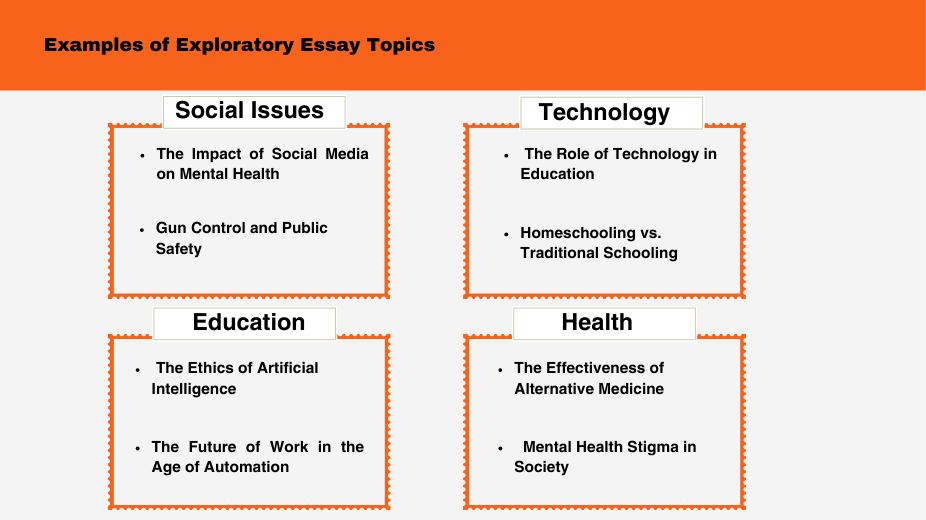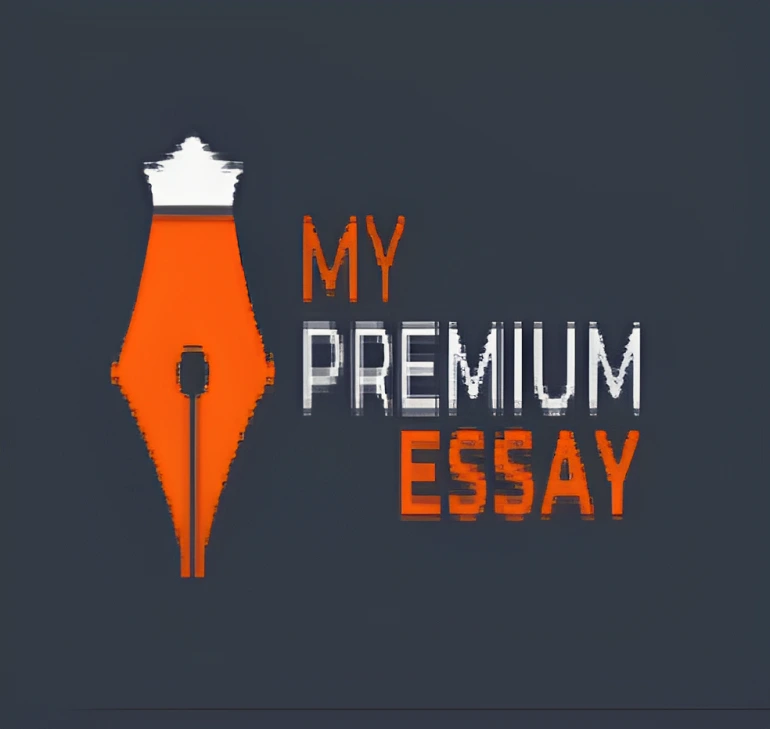Exploratory essays allow writers to explore an issue thoroughly and consider multiple viewpoints, encouraging deeper understanding rather than immediate conclusions. This style of writing is particularly beneficial for complex topics where multiple perspectives hold significant validity. The goal is to explore these differing views in a balanced way, encouraging readers to consider the depth of the subject rather than merely accepting a singular point of view.

For such essays, a well-structured outline serves as a guide to the writer in the writing process and ensures that all perspectives are considered equitably. This meticulous organization helps maintain a clear and logical flow of ideas, making the essay not only informative but also engaging to read. By laying out the main points and supporting arguments systematically, the outline ensures that the discussion remains focused and thorough, providing a solid foundation for a compelling exploratory essay.
In this blog, we’ll guide you through the steps of creating an effective exploratory essay outline that will structure your thoughts and research effectively.
What is an Exploratory Essay?
Exploratory essays are distinct because they focus on exploring an issue rather than proving a point. This type of essay examines possible solutions, reasons, and understandings from multiple angles, encouraging a deeper engagement with the topic.
Components of an Exploratory Essay Outline
1. Introduction
-
Hook: Start with an intriguing question or fact that piques interest. For instance, if your topic is about renewable energy, you might begin with a statistic about the rapid growth of renewable energy sources worldwide.
-
Background Information: Provide a brief context for the topic, explaining why it is relevant or of interest.
-
Purpose Statement: Clearly state that the purpose of your essay is to explore the topic from various perspectives.
-
Thesis Statement: Instead of a conventional thesis, introduce the scope of your exploration, specifying what aspects of the topic will be examined.
2. Body Sections
Each body section of an exploratory essay might focus on a different perspective or a different aspect of the problem.
-
Section 1: Context
-
Historical Background: Offer a brief history of the topic to set the stage.
-
Current Situation: Describe the current state or recent developments in the area being explored.
-
Section 2: Major Viewpoints
-
Viewpoint One: Present the first major viewpoint. Describe who holds this viewpoint and why.
-
Evidence and Analysis: Support this viewpoint with data, quotes, or summaries of relevant research.
-
Viewpoint Two: Discuss an opposing or different viewpoint.
-
Evidence and Analysis: Similarly, provide support for this perspective.
-
Section 3: Implications and Future Prospects
-
Implications: Discuss what the implications are if one perspective is accepted over another.
-
Future Prospects: Speculate on future developments in this field or how further research might evolve.
3. Conclusion
-
Summary: Recap the key points and perspectives explored.
-
Personal Insight: Share your own reflections or conclusions based on the exploration.
-
Final Thought: End with a provocative question or statement that encourages further thinking or research.
Read More: Effective Guideline To Write An Exploratory Paper
Examples of Exploratory Essay Topics
Exploratory essays thrive on inquiry and reflection, making them suitable for a wide range of topics that benefit from deep exploration and understanding of diverse perspectives. Below are examples of exploratory essay topics across different domains, each accompanied by a brief explanation and guiding questions to initiate your exploration.

Social Issues
-
1 The Impact of Social Media on Mental Health
-
Why It's Suited: This topic is multi-faceted, with ongoing research and differing opinions on social media's role in mental health issues.
-
Guiding Questions:
-
How does social media use correlate with mental health issues in teenagers?
-
What are the potential benefits of social media for community and support?
-
2 Gun Control and Public Safety
-
Why It's Suited: Gun control is a contentious issue with strong viewpoints on both sides of the debate, making it ideal for exploratory analysis.
-
Guiding Questions:
-
What are the arguments for and against stricter gun control laws?
-
How do different countries’ gun control laws affect their rates of gun violence?
Technology
-
3 The Ethics of Artificial Intelligence
-
Why It's Suited: AI poses ethical questions that are complex and still being negotiated, perfect for exploratory discussion.
-
Guiding Questions:
-
What ethical considerations arise with the development of autonomous AI systems?
-
How can AI be regulated to ensure ethical use?
-
4 The Future of Work in the Age of Automation
-
Why It's Suited Automation impacts various industries differently and sparks debates on future employment landscapes.
-
Guiding Questions:
-
What industries are most at risk from automation?
-
How might society ensure economic stability in the face of increasing automation?
Education
-
5 The Role of Technology in Education
-
Why It's Suited: This topic is dynamic, with ongoing developments and debates about the benefits and drawbacks of tech in educational settings.
-
Guiding Questions:
-
What are the proven benefits of integrating technology in classrooms?
-
Are there long-term disadvantages for students who rely heavily on technology for learning?
-
6 Homeschooling vs. Traditional Schooling
-
Why It's Suited: This topic allows for exploration of personal, social, and academic implications of different schooling methods.
-
Guiding Questions:
-
What are the social implications of homeschooling compared to traditional schooling?
-
How does the academic success of homeschooled children compare to those in traditional schools?
Health
-
7 The Effectiveness of Alternative Medicine
-
Why It's Suited: Alternative medicine includes a broad spectrum of practices that invite exploration of their efficacy and cultural significance.
-
Guiding Questions:
-
What alternative medicine practices are most commonly used in different cultures?
-
What scientific evidence supports or refutes the effectiveness of these practices?
-
8 Mental Health Stigma in Society
-
Why It's Suited: This topic is rich with social, cultural, and individual perspectives and is relevant to ongoing public health discussions.
-
Guiding Questions:
-
How does stigma affect mental health treatment accessibility?
-
What are effective ways to reduce mental health stigma in the workplace?
These topics spark your curiosity and encourage you to thoroughly explore complex issues, and are ideal for exploratory essays that focus on understanding rather than solving.
Sample Outline for an Exploratory Essay
Chosen Topic: The Impact of Remote Work on Employee Productivity and Well-being
Sample Outline:
| Section | Content |
|---|---|
| I. Introduction |
- Hook: Start with a striking statistic or fact: "As of 2022, nearly 42% of the American workforce continues to work remotely." |
|
- Background Information: Brief introduction to the shift towards remote work accelerated by the COVID-19 pandemic. |
|
|
- Thesis Statement: Pose questions to be explored, such as "How does remote work affect employee productivity and well-being?" |
|
| II. Body |
Paragraph 1: Overview of Remote Work |
|
- Definition and brief history. |
|
|
- Current trends in remote work dynamics. |
|
|
Paragraph 2: Impact on Productivity |
|
|
- Explore studies and data showing effects on productivity. |
|
|
- Discuss factors that enhance or diminish productivity. |
|
|
Paragraph 3: Impact on Well-being |
|
|
- Analyze psychological and physical impacts. |
|
|
- Consider aspects like work-life balance, mental health, physical health. |
|
|
Paragraph 4: Comparative Analysis |
|
|
- Benefits and challenges of remote vs. in-office work. |
|
|
- Include personal anecdotes or case studies. |
|
|
Paragraph 5: Differing Perspectives |
|
|
- Viewpoints from employers, employees, health professionals. |
|
|
- How different stakeholders view the rise of remote work. |
|
| III. Conclusion |
- Summary of Findings: Recap major insights. |
|
- Implications: Discuss broader implications for the future of work. |
|
|
- Closing Thought: End with a reflective question or comment to encourage further thinking. |
Compile Your Exploratory Essay with MyPremiumEssay
Every essay is an opportunity to expand your understanding and express your thoughts. Remember, if you ever need a bit more guidance or just someone to review your work, MyPremiumEssay is just a click away. We as a Safe And Reliable Writing Support providing expert advice and resources whenever you need them. Dive into your essay with enthusiasm, and don't hesitate to reach out for help to make your work truly shine!




